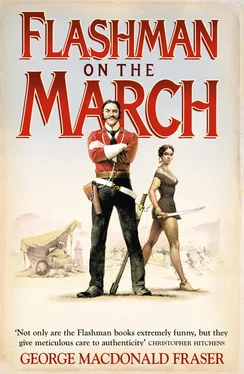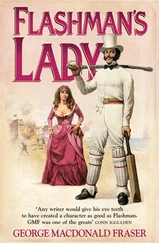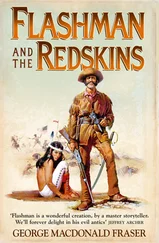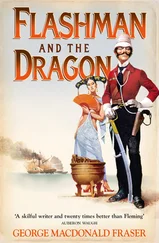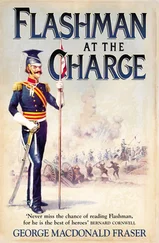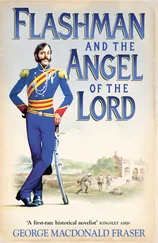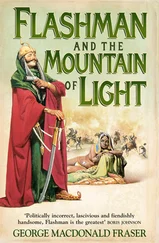George Fraser - Flashman on the March
Здесь есть возможность читать онлайн «George Fraser - Flashman on the March» — ознакомительный отрывок электронной книги совершенно бесплатно, а после прочтения отрывка купить полную версию. В некоторых случаях можно слушать аудио, скачать через торрент в формате fb2 и присутствует краткое содержание. Жанр: unrecognised, на английском языке. Описание произведения, (предисловие) а так же отзывы посетителей доступны на портале библиотеки ЛибКат.
- Название:Flashman on the March
- Автор:
- Жанр:
- Год:неизвестен
- ISBN:нет данных
- Рейтинг книги:4 / 5. Голосов: 1
-
Избранное:Добавить в избранное
- Отзывы:
-
Ваша оценка:
- 80
- 1
- 2
- 3
- 4
- 5
Flashman on the March: краткое содержание, описание и аннотация
Предлагаем к чтению аннотацию, описание, краткое содержание или предисловие (зависит от того, что написал сам автор книги «Flashman on the March»). Если вы не нашли необходимую информацию о книге — напишите в комментариях, мы постараемся отыскать её.
Flashman on the March — читать онлайн ознакомительный отрывок
Ниже представлен текст книги, разбитый по страницам. Система сохранения места последней прочитанной страницы, позволяет с удобством читать онлайн бесплатно книгу «Flashman on the March», без необходимости каждый раз заново искать на чём Вы остановились. Поставьте закладку, и сможете в любой момент перейти на страницу, на которой закончили чтение.
Интервал:
Закладка:
When Hughes axed Flashman from Tom Brown’s Schooldays , brutally and suddenly (on page 170, if I remember rightly), it seemed a pretty callous act to abandon him with all his sins upon him, just at the stage of adolescence when a young fellow needs all the help and understanding he can get. So I adopted him, not from any charitable motives, but because I realised that there was good stuff in the lad, and that with proper care and guidance something could be made out of him.
And I have to say that with all his faults (what am I saying, because of his faults) young Flashy has justified the faith I showed in him. Over the years he and I have gone through several campaigns and assorted adventures, and I can say unhesitatingly that coward, scoundrel, toady, lecher and dissembler though he may be, he is a good man to go into the jungle with.
George MacDonald Fraser
Dedication Contents Cover Title Page Copyright How Did I Get the Idea of Flashman ? Dedication Biographical Note Explanatory Note Map Chapter 1 Chapter 2 Chapter 3 Chapter 4 Chapter 5 Chapter 6 Chapter 7 Chapter 8 Chapter 9 Chapter 10 Chapter 11 Chapter 12 Chapter 13 Chapter 14 Chapter 15 Chapter 16 Chapter 17 Chapter 18 Chapter 19 Appendix I Appendix II Appendix III Footnotes Notes About the Author The FLASHMAN Papers: In chronological order The FLASHMAN Papers: In order of publication Also by George MacDonald Fraser About the Publisher
For Kath, twelve in a row
Contents
Cover
Title Page
Copyright
How Did I Get the Idea of Flashman ?
Dedication
Biographical Note
Explanatory Note
Map
Chapter 1
Chapter 2
Chapter 3
Chapter 4
Chapter 5
Chapter 6
Chapter 7
Chapter 8
Chapter 9
Chapter 10
Chapter 11
Chapter 12
Chapter 13
Chapter 14
Chapter 15
Chapter 16
Chapter 17
Chapter 18
Chapter 19
Appendix I
Appendix II
Appendix III
Footnotes
Notes
About the Author
The FLASHMAN Papers: In chronological order
The FLASHMAN Papers: In order of publication
Also by George MacDonald Fraser
About the Publisher
BIOGRAPHICAL NOTE
FLASHMAN, Harry Paget, brigadier-general, V.C., K.C.B., K.C.I.E.: Chevalier, Legion of Honour; Order of Maria Theresa, Austria; Order of the Elephant, Denmark (temporary); U.S. Medal of Honor; San Serafino Order of Purity and Truth, 4th class; b. May 5, 1822, s. of H. Buckley Flashman, Esq., Ashby, and Hon. Alicia Paget; m. Elspeth Rennie Morrison, d. of Lord Paisley, one s., one d. Educ. Rugby School, 11th Hussars, 17th Lancers. Served Afghanistan 1841–2 (medals, thanks of Parliament); chief of staff to H.M. James Brooke, Rajah of Sarawak, Batang Lupar expedn, 1844; milit. adviser with unique rank of sergeant-general to H.M. Queen Ranavalona of Madagascar, 1844–5; Sutlej campaign, 1845–6 (Ferozeshah, Sobraon, envoy extraordinary to Maharani Jeendan, Court of Lahore); polit. adviser to Herr (later Chancellor Prince) von Bismarck, Schleswig-Holstein, 1847–8; Crimea, staff (Alma, Sevastopol, Balaclava), prisoner of war, 1854; artillery adviser to Atalik Ghazi, Syr Daria campaign, 1855; India, Sepoy Mutiny, 1857–8, dip. envoy to H.R.H. the Maharani of Jhansi, trooper 3rd Native Cavalry, Meerut, subseq. att. Rowbotham’s Mosstroopers, Cawnpore (Lucknow, Gwalior, etc., V.C.); adjutant to Captain John Brown, Harper’s Ferry, 1859; China campaign 1860, polit. mission to Nanking, Taiping Rebellion, polit. and other services, Imperial Court, Pekin; U.S. Army (major, Union forces, 1862, colonel (staff) Army of the Confederacy, 1863); a.d.c. to H.I.M. Maximilian, Emperor of Mexico, 1867; interpreter and observer Sioux campaign, U.S., 1875–6 (Camp Robinson conference, Little Big Horn, etc.); Zulu War, 1879 (Isandhlwana, Rorke’s Drift); Egypt 1882 (Kassassin, Tel-el-Kebir); personal bodyguard to H.I.M. Franz-Josef, Emperor of Austria, 1883; Sudan 1884–5 (Khartoum); Pekin Legations, 1900. Travelled widely in military and civilian capacities, among them supercargo, merchant marine (West Africa), agriculturist (Mississippi valley), wagon captain and hotelier (Santa Fe Trail); buffalo hunter and scout (Oregon Trail); courier (Underground Railroad); majordomo (India), prospector (Australia); trader and missionary (Solomon Islands, Fly River, etc.), lottery supervisor (Manila), diamond broker and horse coper (Punjab), dep. marshal (U.S.), occasional actor and impersonator. Hon. mbr of numerous societies and clubs, including Sons of the Volsungs (Strackenz), Mimbreno Apache Copper Mines band (New Mexico), Khokand Horde (Central Asia), Kit Carson’s Boys (Colorado), Brown’s Lambs (Maryland), M.C.C., White’s and United Service (London, both resigned), Blackjack (Batavia). Chmn, Flashman and Bottomley, Ltd; dir. British Opium Trading Co.; governor, Rugby School; hon. pres. Mission for Reclamation of Reduced Females. Publications: Dawns and Departures of a Soldier’s Life ; Twixt Cossack and Cannon ; The Case Against Army Reform . Recreations: Oriental studies, angling, cricket (performed first recorded ‘hat trick’, wickets of Felix, Pilch, Mynn, for 14 runs, Rugby Past and Present v. Kent, Lord’s 1842; five for 12, Mynn’s Casuals v. All-England XI, 1843). Add: Gandamack Lodge, Ashby, Leics.
EXPLANATORY NOTE
In the campaigns covered by the first eleven packets of his autobiographical Papers – Afghanistan, First Sikh War, Crimea, Indian Mutiny, Brooke’s expedition against the Borneo pirates, the march to Pekin, Custer’s Little Big Horn debacle – Sir Harry Flashman, V.C., etc., the notorious Victorian hero and poltroon, has always been at or near the heart of the action, a reluctant and often jaundiced eye-witness of people and events, and uncomfortably aware of history unfolding about him.
Not so in the Abyssinian War of 1868, surely the strangest of all imperial campaigns, when a British Indian army invaded one of the least known and most dangerous countries on earth, and in the face of apparently insuperable hazards, and predictions of certain failure, marched and fought their way across a trackless wilderness of rocky chasm and jagged mountain to their goal, did what they had come to do, and marched out again with hardly a casualty. There has never perhaps been a success like it in the history of war. It took twelve thousand men, a mighty fleet, nine million pounds (a staggering sum at that time), a meticulous if extravagant organisation, and a remarkable old soldier – and all to rescue a tiny group of British citizens held captive by a mad monster of an African king. Those were, to quote Flashman, the days.
But if he bore no share in the campaign proper, Flashman’s was still the vital part on which success or failure hung – the intelligence mission which was to take him into a series of fearful perils (some of them new even to him) in a war-torn land of mystery, treachery, intrigue, lonely castles, ghost cities, the most beautiful (and savage) women in Africa, and at last into the power of the demented tyrant in his stronghold at the back of beyond. All of which he records with his customary shameless honesty, and it may be that along with the light he casts on a unique chapter of imperial history, he invites a comparison with a later and less glorious day.
For Flashman’s story is about a British army sent out in a good and honest cause by a government who knew what honour meant. It was not sent without initial follies and hesitations in high places, or until every hope of a peaceful issue was gone. It went with the fear of disaster hanging over it, but with the British public in no doubt that it was right. It served no politician’s vanity or interest. It went without messianic rhetoric. There were no false excuses, no deceits, no cover-ups or lies, just a decent resolve to do a government’s first duty: to protect its people, whatever the cost. To quote Flashman again, those were the days.
Читать дальшеИнтервал:
Закладка:
Похожие книги на «Flashman on the March»
Представляем Вашему вниманию похожие книги на «Flashman on the March» списком для выбора. Мы отобрали схожую по названию и смыслу литературу в надежде предоставить читателям больше вариантов отыскать новые, интересные, ещё непрочитанные произведения.
Обсуждение, отзывы о книге «Flashman on the March» и просто собственные мнения читателей. Оставьте ваши комментарии, напишите, что Вы думаете о произведении, его смысле или главных героях. Укажите что конкретно понравилось, а что нет, и почему Вы так считаете.
